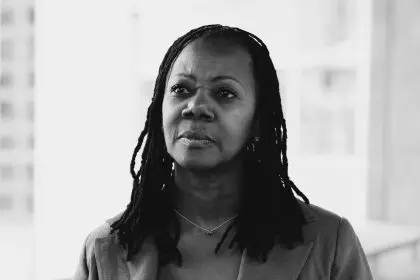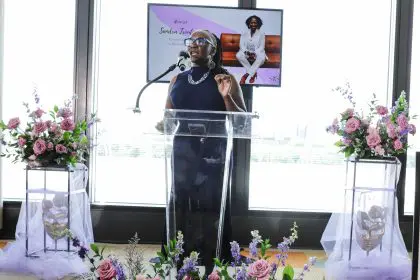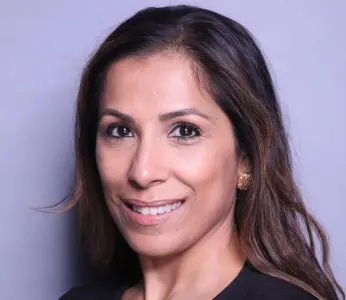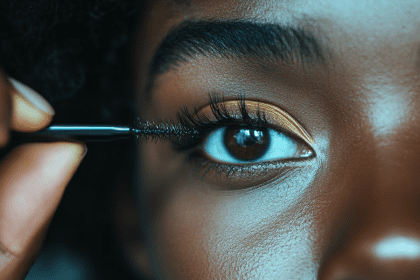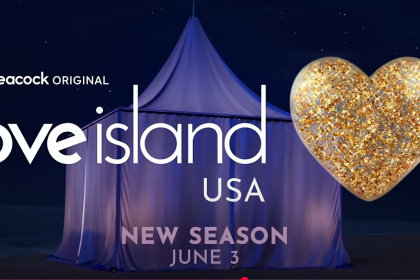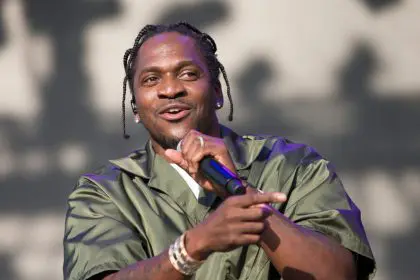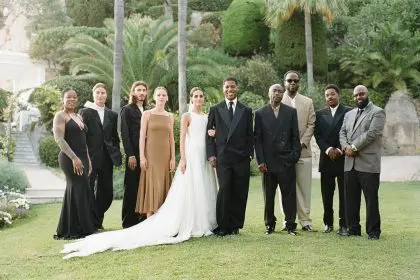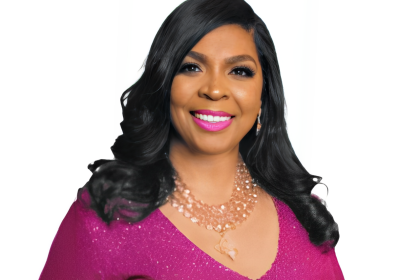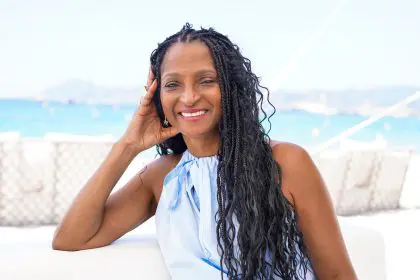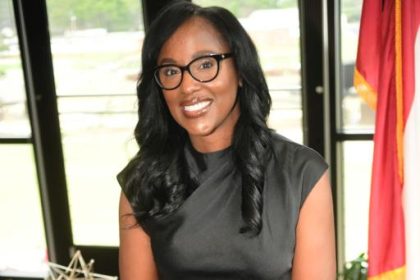Cardiologist Dr. Mary Branch is a fourth-generation African American physician whose journey and unwavering commitment to cardiovascular health has broken new ground. Her story is a compelling testament to resilience, determination, and the pursuit of one’s dreams.
Dr. Branch’s remarkable journey from her roots in Cleveland, Ohio, to becoming the first African American female to join the Cardiovascular Disease fellowship at the Wake Forest Baptist Medical Center is a narrative of will power and triumph. Her educational achievements, coupled with her perseverance through setbacks, exemplify her dedication to serving others and transforming obstacles into opportunities.
Munson Steed: Hey, everybody! This is Munson Steed and we are on sisters with superpowers, and I am introducing you to a sister with superpowers. She is a cardiologist. She’s a phenomenal sister. She comes from a line which we’re gonna ask about, of physicians. 4 generations count ‘em 4, 1, 2, 3, 4, and we really want to welcome Miss Dr. Mary Branch. How are you?
Dr. Mary Branch: I’m doing well. How are you? Thank you for having me. I really appreciate it.
MS: Sisters with Superpowers, when I think of the individuals who are dedicated to care. You chose cardiology. Why? But what is it like to serve? And why’d you choose to put, not a bulletproof cape but a cape where you’ve got to get immersed into places that most people will never see?
MB: Well. So, as you mentioned, I’ve been privileged to be a fourth-generation African American physician. So the idea of serving really started at birth, and that’s just sort of how I was raised is that you kind of pick a service and a purpose. My mother is an infectious disease physician, and so she introduced me to the field of medicine and just seeing her impact in the community was really profound for me as a young person. As an African American woman who just, so many people knew who she was, and she had really saved a lot of lives, especially during the HIV epidemic.
And so, she really made a change for our community because she was willing to treat folks that a lot of people didn’t even wanna go in the room with when they had HIV, and she was there to make sure that they were getting equitable care. So, I was sort of raised on those philosophies and those principles from her. So, she allowed me to shadow different physicians. Infectious disease was not for me but I shadowed emergency medicine and didn’t really get this sort of spark until I shadowed a cardiologist.
And for me, it was the versatility of the role, you could do imaging, you could treat heart attacks, you could read stress tests. I mean there’s so much within this one role and you have such an impact. I remember seeing my first heart cath. And basically, that’s when you open up a blockage and it was just 15 min of putting in a stent, and you’ve extended somebody’s life 15, 20 years. For me, I was blown away that that’s something that you could do.
And the person I shadowed was a Caucasian male, but he just said, come with me, and we just had a lot of fun together. He was very accepting and very encouraging. And that also, kind of, drew me into this field. And then again, a film came out, called Something Lord Made about a African American researcher named Vivian Thomas. And he fought through a lot of different obstacles to work on a therapy for a congenital heart defect. And despite the fact that he was shunned, he couldn’t even walk through the front of the building at Johns Hopkins.
He continued to do the work as it was about the work. It wasn’t really about anything else, no glory just about serving and that kind of purpose. So, all the bells went off and I said, Okay, let me pursue this, even though I didn’t know any women cardiologists. I didn’t know any African American cardiologists. I didn’t even think about it. Actually, this is what I wanna do. So I’m gonna do it. I wanna try. That’s what I did.
MS: So say and share, if you would, your mom’s name, and literally what you glean from her as a sister. Obviously, she has a superpower. But what did you learn as a daughter, as she whispered in her behavior, and whispered to you along the way the possibilities of who and what you were before you, became exactly who you are today.
MB: Yeah. So, her name is Dr. Virginia Banks. She is an infectious disease specialist in Northeast Ohio. What I learned from her, I mean, it’s sort of a legacy. So, she learned from her mother. So my grandmother was a mathematician. She worked in, she was on the City Council for many years. First African American Female in the City Council. She helped Shirley Chisholm when she was running for President. So, my grandmother’s this force, and she just whatever she wanted to do, that’s what she was gonna do. She didn’t really, she wasn’t too honed in or focus on. Well, because of racism. I can’t do these things, she just decided. This is what I’m gonna do.
And she’s quite stubborn, she’s over a hundred now, and I think that helps with her longevity. She’s just stubborn. But, my mother picked up from her, that you just pursue what your passion is, and if your intention is to serve your community, and if your intention is being principle centered, then you’re on the right track. And you really just derive a strategy that is successful, and that works. And you continue to work towards what you believe, your service, and your purpose is. So, I think just kind of that relentlessness of working extraordinarily hard.
She woke up every single day and never called off because she was sick or anything. She had four of us, a couple of divorces and just kept going. A lot of those things would kinda knock you off, and that’s it. But she just kept moving. We moved to a different state. Again, that would cause a lot of challenges for folks, but she continued to practice so just seeing that strength and that ability to to keep pursuing your passion. Was something that I picked up as a young girl.
MS: If you were thinking and getting ready to speak at a Smith, and you were going to give the young women there a vision, or even at a Spelman or a Fisk, Bennett, and you were gonna give a speech on challenging them to be their best, what would the title of your speech be? And what would be the three things that you think that they should live by as they meet that objective, that you would challenge them with?
MB: So I think the title would be kind of maintaining your brand, your purpose, and the setting of adversity. So, the important things that I would emphasize are: One, try to find your passion, your purpose, because that’s really what’s gonna drive you on the days where you don’t really feel like going. You don’t feel like getting up. You don’t understand the kind … because there’s many steps before you actually get to where you wanna go. So, keeping that eye on the prize was something that I was taught but really just putting that up there. If on your vision board is to be a physician, really put that doctor, whatever your last name is, and just have that vision, and work on that manifestation of that vision and keep your eye on the prize.
Second, I would say, don’t let failure completely deter you. You’re gonna fail. You’re taking courses that are extraordinarily difficult depending on where you want to go. And you’re gonna have a bad grade, or you’re gonna be fired from a job, or you’re gonna be rejected from an opportunity. But when one door closes, you just find a window. If this is what you’re called to do, then this is what you’re called to do and getting advice, say, from a college advisor who hasn’t gone to say, if you’re going to medical school. And it’s a premed advisor but they haven’t gone to medical school, but they’re saying, Well, I don’t know if you can go or not.
You always wanna go to the source. They didn’t go to medical school, so they don’t really know. So, make sure that you’re getting information from people that have your best interests at heart. No. 1, and always go straight to the source as opposed to getting many different opinions about what you should do. And then, once again, if you’re being rejected in certain places, say Okay, where else can I find my way to where I wanna go, because there’s many ways to skin a cat, and a lot of our trajectories go like this. It’s not like a straight trajectory, but I’ve been up and down, up and down, poor, and all these things. Living with mice.
It’s a journey for sure, but it’s an adventure, and I see life is an adventure, so you can make it fun and interesting, and you’ll have a story to tell. But again, just don’t let failure stop you and the third thing I would say is, just make sure that you keep those that are close with you. You keep up with them. You keep connected with them. Let them know that you love them and really, as you’re going through the journey. It’s about the journey, not necessarily that end destination. And it’s really important to be surrounded by people that you care about. So, try not to lose sight of that as well, ‘cause it can be very challenging, especially if you get into a certain point in your life. Things can get quite lonely. So, just make sure that you keep those contacts as well. So those are the 3 big components. I would say.
MS: Thank you for that. When it comes to your superpowers, what are your two superpowers that you would like to share with the world, just so that we know?
MB: My two superpowers? Let’s see one. I guess I’m like my grandmother. I’m a little stubborn. If I want something, and I’m very passionate about it, that’s what I’m gonna go for. I don’t always listen, and that helps and it hurts. But again, my superpower is knowing where the source is, and going with that. And then I would say, my second superpower is just my resilience and getting back up after I’ve fallen. I just keep getting back up, and I keep going.
MS: What have you ever read that changed your life on how you see life, and you live by it now?
MB: I would say The Autobiography of Malcolm X. It was written by Alex Haley, who, my great uncle, was one of his physicians. So, there was a connection there and Malcolm X was someone who really just wanted mentorship, and he was very brilliant, and whatever he was taught, he would just consume it. And he would adore this mentor that he found, whether it was when he was doing crime, or when he kind of changed his life around, and was with the Honorable Elijah Muhammad.
But what I learned from Malcolm X’s and my family was close with Auntie Maya Angelou, and it’s something that she kinda mentioned too. You wanna be grateful for those that have helped you and mentors. But you don’t necessarily want to be subservient, and you don’t want to give your life to someone who’s helped you. You can appreciate what they’ve done but that doesn’t mean that you have to devote your life to that mentor, to that person. That you really wanna take ownership of what your purposes and your imprint.
But I think from Malcolm X’s story of just kind of devoting himself because he was just so grateful, I found myself in his shoes at times, and realizing that it’s not how you wanna sort of proceed. You really want to do things for yourself and not for any leader or mentor. That really, it’s about you.
MS: Oh, well, you heard it first. I just want to say congratulations. Thank you very much for all you do as a Sister with Superpowers. Clearly, being a cardiologist, saving lives each and every day, big ups to all the women in your family, obviously men as well, but to all the women that are truly have been rocks in our community, and pillars of gifts and grace that they’ve bestowed on us. I’m Munson Steed, and I have had the pleasure and the honor of speaking with my Sister with Superpowers. Mary Branch, MS, MS, and SWS, Sister with Superpowers.
MB: I’ll have that. Yeah. Thank you. I appreciate your platform, and I hope I’ve been able to inspire some young women today.
MS: Thank you.

